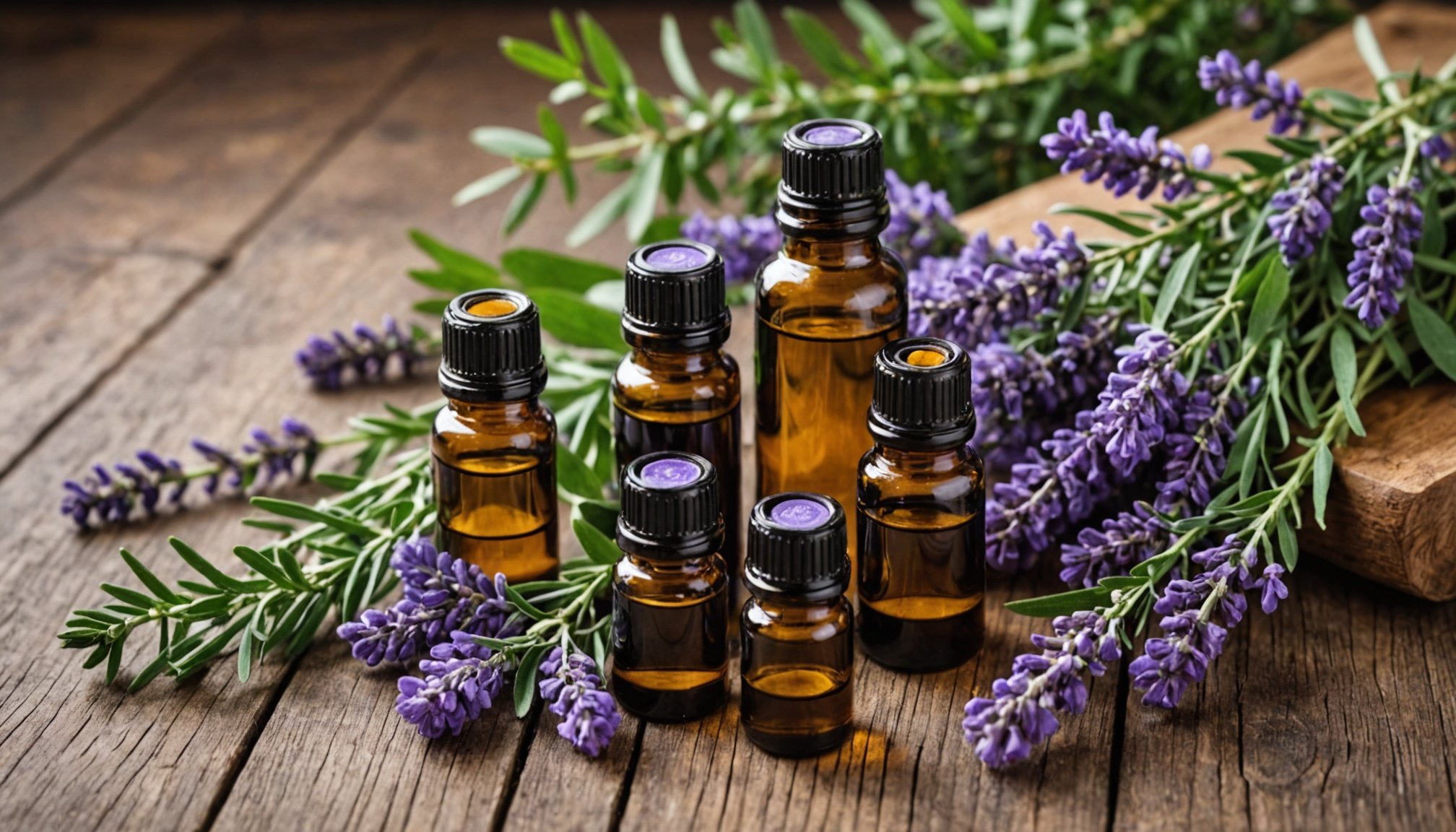Essential oils offer soothing benefits for many, but expectations change during pregnancy. Safety becomes paramount as certain oils can affect both mother and baby. Understanding which essential oils are safe and effective can enhance well-being while mitigating risks. Here, you will find essential safety tips designed specifically for expecting mothers in the UK. Knowledgeable choices empower you to enjoy the advantages of aromatherapy, ensuring a healthier pregnancy journey.
Overview of Essential Oils and Pregnancy
Understanding the use of essential oils during pregnancy is crucial for ensuring safety and well-being. These concentrated plant extracts are commonly used for their aromatic and therapeutic properties, ranging from relaxation to skin care. However, their application requires careful consideration, especially during pregnancy.
Topic to read : Essential Factors to Consider When Selecting a Baby Stroller in Compliance with UK Safety Standards
Essential oils can offer potential benefits, such as alleviating nausea or improving sleep. Yet, it's important to recognize the associated risks. Some oils may cause adverse reactions or interfere with fetal development. Therefore, it is essential to consult healthcare professionals before using them.
Importance of Safety
- Ensuring essential oils safety during pregnancy is paramount.
- Some oils, like lavender and chamomile, are generally considered safe.
- Others, such as rosemary and clary sage, should be avoided due to potential risks.
Potential Benefits and Risks
- Benefits: May help with stress relief, nausea, and sleep.
- Risks: Possible skin irritations, allergic reactions, or hormonal effects.
A balanced understanding of these factors can guide expectant mothers in making informed decisions about essential oil use. Always prioritize safety and professional advice when considering essential oils during pregnancy.
Also to read : Essential Strategies for UK Expecting Mothers to Effectively Alleviate Headaches in the Second Trimester
Safe Essential Oils for Expecting Mothers
When considering safe essential oils for pregnancy, it's vital to choose options that support well-being without posing risks.
Safe Oils and Their Applications
Expecting mothers can safely use certain essential oils, such as lavender, chamomile, and lemon. These oils are renowned for their calming and soothing properties. Lavender, for example, can aid in relaxation and promote restful sleep. Chamomile is often used for its gentle skin care benefits, while lemon is refreshing and can uplift mood.
Recommended Methods of Application
To ensure safety, it's crucial to apply these oils correctly. Diffusion is a popular method, allowing the oils to disperse in the air and provide aromatic benefits. For topical use, it's important to follow suggested dilution ratios to avoid skin irritation. A common guideline is to dilute essential oils with a carrier oil, such as coconut or jojoba, at a ratio of 1% to 2%.
Safe Dilution Ratios
- Lavender: 1% dilution for skin application
- Chamomile: 1% to 2% dilution for massages
- Lemon: 1% dilution for topical use
By adhering to these guidelines, expecting mothers can safely enjoy the benefits of essential oils during pregnancy. Always consult with healthcare professionals to tailor these recommendations to individual needs.
Essential Oils to Avoid During Pregnancy
Understanding which essential oils to avoid in pregnancy is essential for safeguarding maternal and fetal health.
Unsafe Essential Oils
Several essential oils are deemed unsafe for pregnant women due to their potential to cause harm. These include:
- Rosemary: Known for stimulating uterine contractions.
- Clary Sage: Can induce labor when used inappropriately.
- Jasmine: May trigger contractions and should be avoided.
Reasons for Caution
The reasons these oils are unsafe relate to their bioactive compounds. These compounds can interfere with hormone regulation or stimulate uterine activity, posing risks during pregnancy. For instance, rosemary is linked to increased blood pressure and potential uterine contractions, making it unsuitable for expectant mothers.
Potential Health Risks
Using unsafe essential oils can lead to serious health risks, such as:
- Premature labor
- Miscarriage
- Allergic reactions
These risks underline the importance of avoiding certain essential oils during pregnancy. Always consult healthcare professionals before using any essential oils to ensure they align with individual health needs and circumstances. Prioritizing safety is crucial for the well-being of both the mother and the developing fetus.
Guidelines for Using Essential Oils Safely
When using essential oils during pregnancy, safety is paramount. Proper dilution techniques are crucial to minimize risks. Essential oils are highly concentrated, and using them undiluted can lead to skin irritation or allergic reactions. A typical dilution ratio is 1% to 2%, which means adding 1 to 2 drops of essential oil to a teaspoon of carrier oil like coconut or jojoba.
Before applying any essential oil, consider these safe practices:
-
Patch Testing: Conduct a patch test by applying a diluted oil mixture to a small area of skin. Wait 24 hours to check for any adverse reactions, ensuring the oil is safe for use.
-
Consult Healthcare Providers: Always consult with healthcare professionals before incorporating essential oils into your routine. This step is essential for tailoring recommendations to your specific health needs and ensuring the oils do not interfere with any existing conditions or medications.
-
Avoid Sensitive Areas: Refrain from applying essential oils to sensitive areas, such as the eyes or mucous membranes, to prevent irritation.
By adhering to these guidelines, expectant mothers can enjoy the benefits of essential oils while maintaining safety. Prioritizing these practices ensures both maternal and fetal well-being during pregnancy.
UK Regulations Regarding Essential Oils
Understanding the UK regulations on essential oils is essential for ensuring the safe use of these products during pregnancy. The UK has specific guidelines to regulate the production, labeling, and sale of essential oils, which are overseen by organizations like the Aromatherapy Trade Council (ATC).
Ensuring compliance with regulations protects consumers and promotes safe practices.
Regulatory Overview
The ATC plays a crucial role in setting standards for essential oils in the UK. They ensure that products meet safety and quality criteria, protecting consumers from potential hazards. The council provides guidelines on proper labeling, which includes information on potential allergens and correct usage instructions.
Importance of Quality
Sourcing high-quality, regulated essential oils is vital. Products that comply with UK regulations are more likely to be safe and effective. Consumers should look for certifications or endorsements from reputable bodies like the ATC to verify product quality.
Key Points to Consider:
- UK regulations ensure essential oils are safe for consumer use.
- The ATC sets industry standards and guidelines.
- High-quality oils should be sourced from regulated suppliers.
By adhering to these guidelines, consumers can confidently use essential oils, knowing they meet the stringent safety standards set by UK authorities.
Personal Stories and Testimonials
Exploring real-life experiences with essential oils during pregnancy.
Anecdotes from Mothers
Many mothers have shared their personal experiences with essential oils in pregnancy, offering insights into what worked and what didn’t. Jane, a mother of two, found lavender oil particularly beneficial for reducing stress and promoting sleep. She noted, "Using lavender oil in a diffuser helped me unwind after long days, making my pregnancy more comfortable."
Insights on Effectiveness
While some mothers report positive outcomes, others have faced challenges. Sarah tried peppermint oil for nausea relief but experienced skin irritation. "I learned the hard way about the importance of proper dilution," she shared. Such stories highlight the varied emotional and physical impacts of using essential oils.
Emotional and Physical Impact
The emotional and physical impact of using essential oils during pregnancy can be profound. Some mothers felt empowered by their ability to manage symptoms naturally, while others experienced frustration when certain oils didn't meet expectations.
Key Takeaways:
- Lavender: Effective for relaxation
- Peppermint: May cause irritation if not diluted
- Emotional Benefits: Empowerment and comfort
These personal stories underscore the importance of informed decision-making and consultation with healthcare professionals when incorporating essential oils into pregnancy routines.
Potential Side Effects of Essential Oils
Understanding the side effects of essential oils during pregnancy is crucial for safety.
Common Side Effects
Using essential oils during pregnancy can lead to various side effects. These may include skin irritations, headaches, or dizziness. Pregnant women are particularly susceptible to these reactions due to hormonal changes affecting skin sensitivity and olfactory senses.
Signs of Allergic Reactions
Identifying allergic reactions is essential for preventing complications. Look for symptoms such as redness, itching, or swelling at the application site. In severe cases, difficulty breathing or a rash may occur. These reactions signal that the body is sensitive to certain oils, necessitating immediate attention.
Recommendations for Managing Side Effects
If side effects occur, follow these steps:
- Discontinue Use: Stop using the oil immediately.
- Wash Affected Area: Clean the skin with mild soap and water.
- Seek Medical Advice: Consult a healthcare professional for further guidance.
By recognizing these potential side effects and taking prompt action, expectant mothers can manage their use of essential oils safely. Always prioritize professional advice to tailor recommendations to individual health needs.
Resources and Further Reading
Explore essential oils resources for pregnant women to ensure safe and informed use.
Reputable Health Resources
For expectant mothers seeking guidance on essential oils, accessing reputable resources is crucial. The following organizations provide comprehensive information:
- Aromatherapy Trade Council (ATC): Offers guidelines on safe essential oil use.
- National Association for Holistic Aromatherapy (NAHA): Provides educational materials and safety tips.
- International Federation of Aromatherapists (IFA): Advocates for professional aromatherapy standards.
Suggested Books and Articles
Delving into well-researched books and articles can enhance understanding. Consider these recommended readings:
- "Essential Oils for Maternity" by Jane Buckle: A comprehensive guide on safe practices.
- "The Complete Book of Essential Oils and Aromatherapy" by Valerie Ann Worwood: Offers insights into the therapeutic use of oils.
- Articles from peer-reviewed journals focusing on essential oils and pregnancy.
Professional Organizations
Professional organizations play a pivotal role in advocating for safe essential oil use. They provide resources and support for pregnant women:
- NAHA: Focuses on education and safety.
- IFA: Promotes high standards in aromatherapy practices.
- ATC: Ensures product safety and compliance.
By consulting these resources, expecting mothers can confidently explore essential oils, knowing they are backed by expert recommendations and reputable information.
Summary of Key Safety Tips
Essential oils safety tips for pregnancy to ensure well-being.
Essential Oils to Use and Avoid
Essential oils safety tips for pregnancy involve understanding which oils are safe to use and which to avoid. Safe options include lavender, known for its calming effects, and chamomile, appreciated for skin care. Conversely, avoid oils like rosemary, which can stimulate uterine contractions, and clary sage, which may induce labor.
Best Practices for Safe Use
Adhering to best practices ensures the safe use of essential oils during pregnancy. Always conduct a patch test to check for adverse skin reactions. Use proper dilution techniques, mixing essential oils with a carrier oil at a 1% to 2% ratio. Consult healthcare providers to tailor essential oil use to individual health needs.
Prioritizing Health and Safety
Prioritizing health and safety is crucial for expectant mothers using essential oils. Focus on informed decision-making and professional guidance. Consider these tips:
- Conduct patch tests before use.
- Avoid oils with known risks.
- Consult with healthcare professionals.
By following these essential oils safety tips for pregnancy, mothers can confidently enjoy the benefits while ensuring their well-being and that of their developing baby.
















